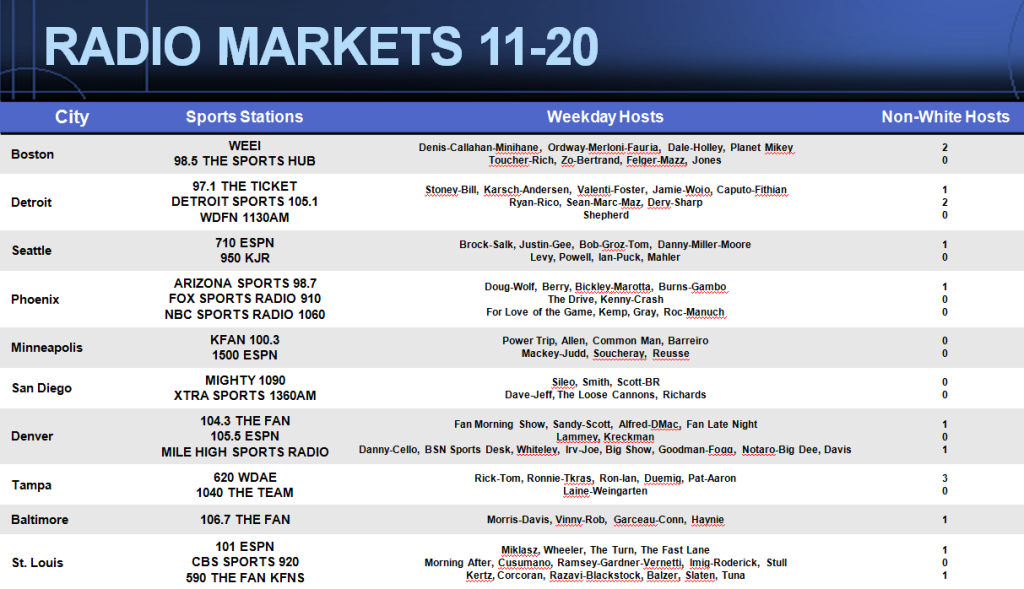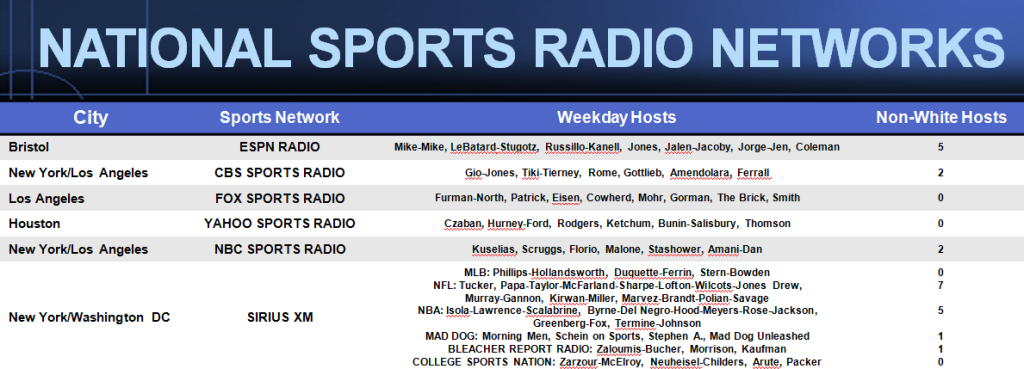To make things better in life and business, we often have to tackle difficult subjects and be willing to engage in conversations that make us flinch. As a former programmer, I was taught to avoid three subjects which can divide an audience – race, religion, and politics. While I agree that those topics can be divisive in everyday sports talk conversation, I don’t think those subjects should be avoided when they apply to the progress or lack thereof in our format.
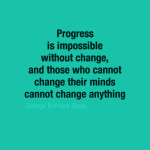 For some in the media industry, this column will serve as a breath of fresh air and make them feel inspired to have deeper dialogue on ways to evolve our people and brands. For others, this trip into the land of the uncomfortable is going to make them uneasy and maybe even angry or dismissive. But it’s necessary.
For some in the media industry, this column will serve as a breath of fresh air and make them feel inspired to have deeper dialogue on ways to evolve our people and brands. For others, this trip into the land of the uncomfortable is going to make them uneasy and maybe even angry or dismissive. But it’s necessary.
Sharing our views on a subject such as race is often perceived as dangerous. Why? Because it’s a topic that gets people’s emotions stirred and when information is lacking or revealed, it can make us look uninformed, irresponsible or agenda driven.
While it may be complex and make the hairs on our necks stand up, it’s a conversation that shouldn’t be ignored when it comes to sports radio. We’re all adults and it’s 2015 not 1865. Anyone who works in this format should understand that we benefit more by reaching the entire audience, not just select demographics. You can’t do that though by only providing one side of the conversation.
Since the sports talk format was created thirty years ago, it’s been heavily targeted to white males between the ages of 25-54. Part of that stems from white audiences being more interested in the content. Some is a result of on-air lineups and station management being heavily caucasian and refusing to step outside of their comfort zones.
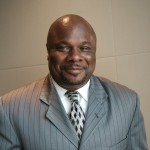 ESPN Audio’s Vice President of Network Content David Roberts says those realities extend beyond the media business: “In many industries there’s still this comfort level to pick people who we identify most with. Diversity means being willing to listen to ideas and surround yourself with people who look, think, and act different than you do. If someone can bring a different perspective and help a company improve, then it only makes sense to explore hiring them.”
ESPN Audio’s Vice President of Network Content David Roberts says those realities extend beyond the media business: “In many industries there’s still this comfort level to pick people who we identify most with. Diversity means being willing to listen to ideas and surround yourself with people who look, think, and act different than you do. If someone can bring a different perspective and help a company improve, then it only makes sense to explore hiring them.”
Although the format has grown, there are many sports stations today that don’t deliver big ratings. In some cases, brands finish between 10th and 20th place, and reach only 2-3% of the Male 25-54 audience. Yet, that is considered a success. To play devil’s advocate, one could argue that 97-98% of Men 25-54 DID NOT listen to those stations/personalities. It’s really hard to use the word ‘success’ when you look at it that way.
So why do sports stations struggle to generate bigger numbers? Is it because the programming is predictable? Is it due to a steady presence on AM radio which younger people listen less to? Is it because of poor measurement? Or is something else happening that prevents the format from reaching the largest pool of people?
That ‘something’ I’m referring to is a lack of diversity on the air. And let’s be clear, that doesn’t mean black personalities – it means Black, Asian, Hispanic, Indian, every ethnic background that is non-white.
I’ve programmed in San Francisco, Philadelphia, and St. Louis – three different pockets of the country, and in each case, the percentages of white males to non-white males who listened were between 70-90% white, and 10-30% non-white. There are a few markets where the percentages are different, but overall, this is a regular trend.
What that tells us is that the content appeals to a select group of people (white males 25-54). Attracting interest from minority audiences remains a bigger challenge.
 One of the first diverse shows to expand the audience in a local market were the “2 Live Stews” who broadcasted on the now defunct 790 The Zone in Atlanta. Doug and Ryan Stewart were the hosts, and they debuted in 2001 and grew from late evenings, to mid-days, to afternoon drive, and became The Zone’s highest rated show. That led to appearances on ESPN, a show on ESPN2, a syndication deal with Radio One, and a national slot on Sporting News Radio.
One of the first diverse shows to expand the audience in a local market were the “2 Live Stews” who broadcasted on the now defunct 790 The Zone in Atlanta. Doug and Ryan Stewart were the hosts, and they debuted in 2001 and grew from late evenings, to mid-days, to afternoon drive, and became The Zone’s highest rated show. That led to appearances on ESPN, a show on ESPN2, a syndication deal with Radio One, and a national slot on Sporting News Radio.
Despite all of that success, the pair have had a tough time gaining another opportunity in Atlanta, or anywhere else for that matter. They currently host a 1-hour program on Saturday morning on WGST in Atlanta.
Doug said “The diversity in Sports Radio almost 15 years after the debut of the “2 Live Stews” is very disappointing. We were lauded for being the first (all) black show in sports radio history and you’d think it would open up doors right? Not. We don’t have a job (or real interest for that matter) and not many other black hosts have been given opportunities either. Factor in that just about all of our station contemporaries are working in the industry, and add to the equation the “verifiable” success that we had concerning numbers and national success, and it’s disheartening to say the least.”
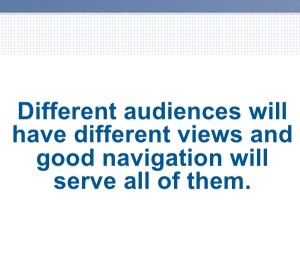 It’s common to gravitate to those who think and sound like us and share a similar upbringing. When we hear someone speak differently and approach topics from an unfamiliar place, we usually reject it. What makes that problematic is that for someone like myself, who’s 41 and a white male, I can still put on a sports radio station and hear 80-90% of people who I stand a chance to connect with. For a minority listener though, they’re treated to 15% of people who share a similar background. That means that if they want to listen to sports talk, they have to listen to hosts who they may identify with less. The only other option is to not listen at all.
It’s common to gravitate to those who think and sound like us and share a similar upbringing. When we hear someone speak differently and approach topics from an unfamiliar place, we usually reject it. What makes that problematic is that for someone like myself, who’s 41 and a white male, I can still put on a sports radio station and hear 80-90% of people who I stand a chance to connect with. For a minority listener though, they’re treated to 15% of people who share a similar background. That means that if they want to listen to sports talk, they have to listen to hosts who they may identify with less. The only other option is to not listen at all.
I went through the top 20 markets and the stations in each of those cities that operate this format. I also analyzed 5 national sports networks and SiriusXM’s key sports channels to look at the total amount of regular weekday on-air personalities who are white vs. non-white. I’m not including update anchors, fill-in hosts or reporters – just the people who occupy positions M-F between 6a-Midnight.
Now take a look below at each market’s demographics and how they compare to the talent mix in each city.
For additional observations on the information I presented above, click the following link.
If you were to create a headline from the data above, it would say “sports radio stations over deliver on white personalities and under deliver on non-white personalities“. 85% of the on-air people in this study were white. That’s 22% higher than the percentage of people in these cities who fit the same description. The only demographic in line with its statistics are African Americans. They make up 15% of the population among the Top 20 cities, and are represented by 14% of Black on-air personalities.
What’s more alarming is the shortage of Hispanics who are hosting sports talk shows. I counted five in top 20 markets and across all national platforms. That means only 1% of our key on-air talent are Hispanic, yet they make up 22% of the population in these markets. Hispanics love sports as much as everyone else, and they are a larger group of people than even African Americans. Still, they are the most underrepresented group in our entire format.
Altogether, minorities (Black and Hispanic) represent 37% of the population in these cities but only 15% of the format’s On-Air personalities come from minority backgrounds. This is a major issue that needs to be corrected, but it’s one that I’m not sure we’re prepared right now to fix. Here’s why. Did you know that of the entire list of stations above in top 20 markets, only 1 has a Program Director who isn’t a white male (Terry Foxx at 92.9 The Game in Atlanta)? If you look at the 5 national sports networks, only ESPN Radio employs a minority Programmer (David Roberts). They also employ two female programmers (Amanda Gifford and Louise Cornetta). No other network does that.
If we expect to expand our thinking, and reach more people, it has to start up top. I’m not privy to the braintrust of each group and why they make the decisions that they do, but the disparity I see on the air is not in line with the makeup of the audience. If you look deeper, the same challenges exist with market manager positions, corporate executive jobs, and ownership. In the NFL, the Rooney Rule was introduced to encourage organizations to consider candidates who weren’t white. I’m not sure if that type of approach is necessary or if it would even work, but clearly something has to be done.
As true as it may be that we have work to do in hiring minority managers and on-air talent, there is also a problem with getting them interested in our business, especially Hispanics. That doesn’t mean there aren’t great non-white candidates out there who are worth investing in, but the options to choose from are definitely less.
 In May 2014, Chris “Mad Dog” Russo addressed this subject on his national radio program when a caller asked him why his channel didn’t feature any minority personalities. He said “What would you like us to do? There are not a million candidates. Would you like us to put on a black host for the sake of putting a person on? If there is any person of any ethnicity who wants to get a job at ‘Mad Dog Radio’ and we feel he or she is capable of doing a national talk show at the highest level, I’d put them on in a second. Let’s just say we are not being overwhelmed by resumes.”
In May 2014, Chris “Mad Dog” Russo addressed this subject on his national radio program when a caller asked him why his channel didn’t feature any minority personalities. He said “What would you like us to do? There are not a million candidates. Would you like us to put on a black host for the sake of putting a person on? If there is any person of any ethnicity who wants to get a job at ‘Mad Dog Radio’ and we feel he or she is capable of doing a national talk show at the highest level, I’d put them on in a second. Let’s just say we are not being overwhelmed by resumes.”
Although Russo’s comments were originally criticized, I appreciated his honesty. My only issue was that while he was absolutely right about a lack of interest, the solution is to go out and find people, not wait for them to find us. Most personalities don’t know the challenges that exist inside each radio company, and it’s the Program Director’s job to find talent, bring them in, coach them up, and give them the platform to display their skills.
To their credit, Mad Dog Radio solved the issue by partnering with ESPN Radio. That relationship resulted in Stephen A. Smith joining the channel and becoming the host of weekdays 1p-3p EST. As part of the agreement, ESPN Radio produces the program.
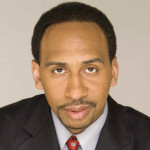 When Smith was initially named host of the program he said “I’m not just able to help myself but various African Americans within the radio industry that are looking for opportunities. I’ve got to be a trendsetter and make it happen because if I drop the ball, I not only drop the ball for me but I drop the ball for all of us.”
When Smith was initially named host of the program he said “I’m not just able to help myself but various African Americans within the radio industry that are looking for opportunities. I’ve got to be a trendsetter and make it happen because if I drop the ball, I not only drop the ball for me but I drop the ball for all of us.”
He’s probably right, and that in itself saddens me. No person should have to go to work feeling like they have the weight of an entire race on their shoulders. Can you imagine if a white on-air personality was faced with that responsibility and their success or failure determined whether or not other companies would employ future white hosts?
We can talk about these problems until we’re blue in the face but what our industry needs now are solutions. For starters, there should be a stronger emphasis on training and recruiting. It’s easy to tell a manager “go hire great people and get us ratings” but most radio stations don’t talk to their managers about the importance of being diverse, nor do they show them why it matters or how to find candidates from different backgrounds. If nobody else inside an operation thinks it’s critical, and the programmer is judged on their ability to deliver ratings, they’re not going to care as much about the makeup of a lineup, as they are its ability to produce results. They’re also more likely to surround themselves with people they relate to.
I asked a Program Director (who wished to remain anonymous) about this issue and he confirmed that it’s a problem. “I’d love to say that I’ve done a good job at promoting diversity but the truth is that I can do better and probably need to focus on this more than I have in the past. We can place blame on a lack of training but that’s a cop out. The bigger issue I believe is simply having a discussion about it. Very few people want to talk about race. I think it’s only natural for people in my position to hire talent who they connect with most. Our audience comes from a similar place. But to your point, we’re not going to grow the audience if we don’t make hiring minority talent a bigger priority and it all starts with increasing dialogue”.
Early in my career when I first started programming, building a diverse radio station wasn’t on my radar. I went to work, listened for great talent, reviewed the candidates that applied for an opening, and made decisions based on what I felt was good. However, when I built 101 ESPN in St. Louis, I took a different approach. I made a real conscious effort to make sure we had a unique mix of people to reach the entire community. I wanted younger personalities, and veterans. Male and Female. White and Non-White.
 During that time I hired D’Marco Farr and the late Bryan Burwell in weekday positions. I also hired Alvin Reid and Rene Knott as weekend hosts, Tony Softli as a Reporter, Rick Venturi as an Analyst/Host, Sara Dayley as an Anchor, and Michelle Smallmon as a Producer. The brand was unique and full of talented people from multiple backgrounds and together we enjoyed a lot of success.
During that time I hired D’Marco Farr and the late Bryan Burwell in weekday positions. I also hired Alvin Reid and Rene Knott as weekend hosts, Tony Softli as a Reporter, Rick Venturi as an Analyst/Host, Sara Dayley as an Anchor, and Michelle Smallmon as a Producer. The brand was unique and full of talented people from multiple backgrounds and together we enjoyed a lot of success.
In San Francisco I took a similar approach. NFL Network personality Eric Davis was part of our initial afternoon show with Brandon Tierney. As we grew I added others to the roster from different backgrounds including Henry Wofford, Daryle “The Guru” Johnson, Gianna Franco, Anna Kagarakis, Lorenzo Neal, and a program called “The Three Amigos” which featured Victor Zaragoza who was Mexican, and Rudy Ortiz and Brandon Santiago who were Hispanic.
While my previous two stations took diversity into account, and did a good job of making it important to the programming mix, one could still argue that we didn’t do enough. I can’t disagree but I can say that we did try and put a lot of thought into every decision we made.
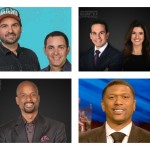 One group which I believe did a masterful job at making their programming more diverse recently is ESPN Radio. Dan Le Batard, Jorge Sedano, Bomani Jones, and Freddie Coleman are all non-white and talented, and they’ve been given the same chance to succeed on the network as Mike Greenberg, Mike Golic, Jon Weiner, Ryen Russillo, Danny Kanell and Jen Lada. Traug Keller, Mo Davenport, David Roberts, Amanda Gifford, Pete Gianesini, Ray Necci, Louise Cornetta and every other ESPN Radio manager who was involved in the talent process deserves to be applauded for taking steps to create change.
One group which I believe did a masterful job at making their programming more diverse recently is ESPN Radio. Dan Le Batard, Jorge Sedano, Bomani Jones, and Freddie Coleman are all non-white and talented, and they’ve been given the same chance to succeed on the network as Mike Greenberg, Mike Golic, Jon Weiner, Ryen Russillo, Danny Kanell and Jen Lada. Traug Keller, Mo Davenport, David Roberts, Amanda Gifford, Pete Gianesini, Ray Necci, Louise Cornetta and every other ESPN Radio manager who was involved in the talent process deserves to be applauded for taking steps to create change.
I asked Roberts how the hiring process worked and he said “We never select numbers for how many people will be given a position based on their background. As long as you operate by making sure that the best talent available is selected, then the principles and impact of diversity will take care of itself. The wider you make the net, the better chance you have at success. The more narrow the pool, the less likely you are to succeed.”
Let’s understand one really important thing on this subject. Just because a white personality hosts a show, doesn’t mean they can’t relate or connect with an African American or Hispanic listener. The same holds true for any minority host trying to connect with a white audience. If the content is great, and the topic, information, and opinion is intriguing, people will listen to it. But that doesn’t mean we shouldn’t strive to provide a better mix of on-air talent so we can appeal to all demographics.
To get a better read on the challenges our industry faces with regards to diversity, I thought it’d be helpful to talk to some non-white personalities who I respect a great deal. I think you’ll find this conversation to be very enlightening. Change can only happen when we recognize a problem and care enough to fix it. If a few people in our format in positions of influence read this and are moved to re-evaluate their approach and commitment to diversity, then that’ll be a step in the right direction. From where I sit, we could all benefit a great deal from it.
- Jorge Sedano – Host of “Jorge & Jen” on ESPN Radio
- Carl Dukes – Host of “Dukes & Bell” on 92.9 The Game in Atlanta
- Newy Scruggs – Host of “Voices of The Game” on NBC Sports Radio
- Freddie Coleman – Host of “The Freddie Coleman Show” on ESPN Radio
- Carrington Harrison – Co-Host of “The Drive” on 610 Sports in Kansas City
- Sean Adams – Co-Host of “The Bottom Line” on AM 1300 The Zone in Austin
How do you feel about the balance in sports radio today as it applies to presenting diverse on-air personalities and programming?
Adams: I don’t think it is diverse at all. People might look at the raw numbers and say things are better but many members of the mainstream media who also write and do television, are still pulled from a very homogeneous group of white men that lack the the most important part of diversity, experience.
Sedano: I think a market or a network should reflect its communities. At ESPN Radio, we have done a great job with diversity. Look at our weekday lineup. Mike & Mike, Dan Le Batard, Ryen Russillo & Danny Kanell, Bomani Jones, Jalen Rose & Dave Jacoby, Freddie Coleman, Jen Lada and myself. It’s a reflection of our society. That’s a testament to our leadership at ESPN, Traug Keller, Mo Davenport and Dave Roberts. They look for the most talented group of hosts who can provide different perspectives. It’s what the medium was built on – different perspectives.
 Dukes: I don’t think there is a balance. When you look around at the major market radio companies and stations and the major dayparts on those brands, how many African American are hosting shows? The balance is still very inadequate when you talk about sports radio today and how it applies to presenting diverse on-air personalities and programming.
Dukes: I don’t think there is a balance. When you look around at the major market radio companies and stations and the major dayparts on those brands, how many African American are hosting shows? The balance is still very inadequate when you talk about sports radio today and how it applies to presenting diverse on-air personalities and programming.
Harrison: There is no racial balance in sports radio today. Look at the Talkers Top 100 list from any year, and count the number of non white people on that list. An even better exercise, count the number of non-white non athletes on the list. Sports talk radio is a middle aged white male platform so the hosts reflect that and largely speak from that relatable point of view and connect with the intended audience.
Is it better, the same, or worse than it was 10 years ago?
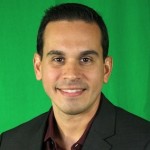 Sedano: I came from Miami where 50% of the radio listening audience is Hispanic. When I worked in Miami there were only 3 Hispanic hosts in the weekday lineups. LeBatard, Orlando Alzugaray and myself. Now my ESPN colleague and long time friend Israel Gutierrez is doing drive time in Miami. 25% of Miami is African American. There are only three African American hosts on weekdays in Miami. Joy Taylor is a morning host on the Ticket, Leroy Hoard does middays there and Channing Crowder does afternoons on WQAM. There are 4 sports stations in Miami. The number of ethnic hosts don’t reflect the community there enough. I can say the same for most markets in America. For that matter, I can say the same for some radio networks as well.
Sedano: I came from Miami where 50% of the radio listening audience is Hispanic. When I worked in Miami there were only 3 Hispanic hosts in the weekday lineups. LeBatard, Orlando Alzugaray and myself. Now my ESPN colleague and long time friend Israel Gutierrez is doing drive time in Miami. 25% of Miami is African American. There are only three African American hosts on weekdays in Miami. Joy Taylor is a morning host on the Ticket, Leroy Hoard does middays there and Channing Crowder does afternoons on WQAM. There are 4 sports stations in Miami. The number of ethnic hosts don’t reflect the community there enough. I can say the same for most markets in America. For that matter, I can say the same for some radio networks as well.
Dukes: It is certainly better. Some doors have been opened for minorities but it’s still not as good as it should be. I think it has a lot more to do with guys like myself, the 2 Live Stews, Terry Foster in Detroit, and others having success when they do receive an opportunity. I’m a big believer that you have to see it to believe it. Once people can see us doing well, it will give more of them the courage to pursue their dreams too.
Scruggs: It’s better because you get to hear shows with hosts like Bomani Jones, Steve Kim, the 2 Live Stews or Mike Hill. You can actually give points and opinions from a minority perspective and not be afraid you’ll be pulled off the air. Some PD’s don’t want you to sound too “urban”, the code word.
Coleman: Definitely better because there are more minorities who are a part of sports talk radio. For the longest time, there weren’t any to listen to nationally or locally.
In sports radio, many of the on-air talent who aren’t white, have a background in professional sports. Why do you believe that stations will take a chance on a former athlete but not as much on an individual from a different background who is simply well educated or a good broadcaster?
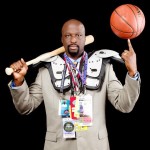 Adams: Historically those from non-white backgrounds have had to have more credibility than their white counterparts. In some ways it worked almost like television where one was the play by play (radio guy) and one was the color. Non-whites filled the second role and their credibility came from former players.
Adams: Historically those from non-white backgrounds have had to have more credibility than their white counterparts. In some ways it worked almost like television where one was the play by play (radio guy) and one was the color. Non-whites filled the second role and their credibility came from former players.
Sedano: I’m not in those other guys heads so I can only speak for myself. I was the PD/Host at WQAM for one year (Sept 2012-Aug 2013). In that time, I put on Channing Crowder who played in the NFL, and on the weekends I hired Ed Freeman & Jeff Fox who were broadcasters. I tried to hire Bomani Jones. I texted him once to gauge his interest, but he had bigger things on the horizon. Obviously, we see what that was.
It’s easier to hire a former jock because they have name value. It takes more of an investment to give a broadcaster that same opportunity. Most PD’s are under pressure to produce ratings and help sales staffs to meet numbers. So they don’t want to invest the time and effort it takes to coach a good, young broadcaster.
Dukes: The reason why is because the formula has always been that you needed a former professional athlete on the station to attract an audience. I don’t believe that formula is true anymore. My partner (Mike Bell) and I here in Atlanta didn’t play professional sports and we’re doing well. Toucher & Rich in Boston and Ben & Skin in Dallas are doing excellent and they didn’t play the game. I’ve worked with numerous former athletes, including Kordell Stewart here at The Game, and as knowledgeable as they are about the game, sometimes they can be limited in what they’re willing to say or do.
Scruggs: PD’s like names and get fooled all the time when athletes want to get into radio. The person hiring thinks they hit a 2-run homer: a former local player AND he’s black/Latino. Most players don’t want to put in the work that it takes to do sports radio at a high level. That is not a shot but it’s something I have seen.
Why is it important for sports stations to feature personalities who come from different backgrounds?
Dukes: That’s what life is all about. We should all strive to see what’s out there. When you include different cultures and ethnicities, then you can respect things more when certain stories come up. For example, when the Adrian Peterson story blew up last year, two white guys from Iowa discussing that topic versus an African-American with the same cultural experience, is a different deal. That viewpoint is going to be different and I think that’s beneficial and important to sports radio. As society continues to change, and we are truly one big melting pot, I think it’s important that listeners and fans get to hear as many perspectives as possible.
Scruggs: Just look at the world we live in. It’s important to bring viewpoints from women, gays, minorities and people of different faith. The world has changed.
 Harrison: Talk radio is such a different type of medium because so much of your personality, upbringing, culture, background, and religious beliefs come out in how you portray your opinions. Since when is having different voices (not just black males) but a woman’s perspective too a bad thing? Can’t they provide a view that I don’t have? Isn’t that the point of open discussion?
Harrison: Talk radio is such a different type of medium because so much of your personality, upbringing, culture, background, and religious beliefs come out in how you portray your opinions. Since when is having different voices (not just black males) but a woman’s perspective too a bad thing? Can’t they provide a view that I don’t have? Isn’t that the point of open discussion?
If all the personalities are largely the same and essentially at the same point in life (married, two kids, house, etc.), how is the conversation ever truly unique? That’s not representative of the entire audience. I’m a 27 single black male, and on some levels it is impossible for me to relate to the middle aged white male, but doesn’t my story and the story of people like me also deserve to be heard?
Coleman: Because everybody isn’t the same and I’ve always believed that you don’t have to like people from different backgrounds, but you should be able to understand the differences. To me if you don’t, then you have a completely narrow view. Not every white person thinks the same, but a host has to understand, no matter their color or background, that understanding has to play a part.
If the majority of listening is done by white males between 25-54, and they relate strongly to white hosts in the same demographic, why should a company executive alter their approach?
Adams: Those same white males enjoy watching sports that are largely minority and the value of the diversity in former players (of any level) lends credibility to said host.
Sedano: Why wouldn’t you want to grow your audience beyond white males between 25-54? Are executives afraid that the white male audience will not be retained if there is a minority host? I think that’s a bit presumptuous. Good content is good content. People want good content.
Dukes: A lot of guys are afraid to alter their approach because they’re afraid that people won’t listen. My approach has always been that I need everyone to listen to win. I am not solely dedicated to having just African Americans listen. I want the husband, the wife, the sports fan, the fringe fan, no matter what they look like, or where they come from, I need all of those people to win.
I never try to delegate my style or my delivery to one type of individual. I hope the audience likes who I am and what I do but I’m not trying to do something to attract a certain type of individual. How does it sound? Is it smart? Is it intelligent? Is it entertaining? If it checks those boxes, then it shouldn’t matter what you look like because people will listen, and that should be the reason why an executive should be receptive to altering their approach.
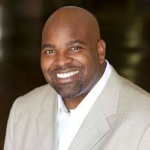 Scruggs: So it’s OK to bring in the ex minority ballplayer for pre and postgame coverage of the station’s games but keep the host white so you don’t offend the white audience? That is hooey and 1990’s type of thinking. We live in a country where the voting public is overwhelming white and a black man was elected President of the United States twice. There are many talented non white male broadcasters that can bring compelling sports talk to the airwaves.
Scruggs: So it’s OK to bring in the ex minority ballplayer for pre and postgame coverage of the station’s games but keep the host white so you don’t offend the white audience? That is hooey and 1990’s type of thinking. We live in a country where the voting public is overwhelming white and a black man was elected President of the United States twice. There are many talented non white male broadcasters that can bring compelling sports talk to the airwaves.
What is the #1 reason in your opinion of why stations struggle to employ more non-white on-air talent? (is it a lack of interest from minority candidates, programmers afraid to leave their comfort zone, listening audiences won’t listen as much, etc.)
Adams: Not only are programmers afraid to leave their comfort zones but they are also uncomfortable with communication styles and patterns that might work against non-traditional forms of diction and odd usage. Stuart Scott was popular and hated for a reason. He was different. That scares people.
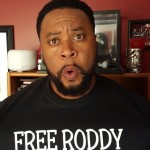 Dukes: This is traditionally a white male dominated field. It’s slowly changing though. When we can stop saying there’s one minority candidate on a sports station in an entire market occupying a major daypart as a lead host, that’s when we can say we’ve made real progress. Most stations are afraid that the listening audience won’t connect if they feature more non-white personalities, and I disagree with that. I think you connect through your experiences and your likes about sports and real life. I have children, I’m a homeowner, I own a car, I enjoy restaurants, those things apply no matter what you look like or where you come from.
Dukes: This is traditionally a white male dominated field. It’s slowly changing though. When we can stop saying there’s one minority candidate on a sports station in an entire market occupying a major daypart as a lead host, that’s when we can say we’ve made real progress. Most stations are afraid that the listening audience won’t connect if they feature more non-white personalities, and I disagree with that. I think you connect through your experiences and your likes about sports and real life. I have children, I’m a homeowner, I own a car, I enjoy restaurants, those things apply no matter what you look like or where you come from.
We need to get past what a person looks like, and think about what they offer to the radio station and the listening audience. Here in Atlanta it’s very unique. Terry Foxx is the Program Director and Sean Thompson is the Assistant Program Director and both are African American. That dynamic isn’t anywhere else in the country, but it should be. But those doors haven’t opened as much. None the less, because there are not enough minorities
Scruggs: Sports radio PD’s are on par with baseball. I saw it two years ago when there was pushback from executives on a black talk show host who had strong opinions. The GM identified him as an up and coming young talent. The GM also had a young white writer with strong sports opinions who he felt was also an up and coming young radio talent. He wanted to hire both but he listened to his staff’s opinion instead of his gut.
The white male ended up getting a show and they passed on the black candidate. The black candidate now has a successful national show and has blown up with a different network. The white male has been very good and performed well, just like the GM predicted. The station could have had both.
Harrison: Lack of effort. Lack of development. Lack of trying. Everyone wants a job like this. You get to talk sports for a living. Sure like any job it comes with a certain set of challenges but it’s an incredible line of work. It’s what I always wanted to do. It requires someone taking a chance and believing that you can do it. More PDs have to believe that someone like me is capable of connecting with a large audience. It takes time and patience.
How do you feel non-white personalities are measured in sports radio?
Adams: It’s no different than what we see with non-white coaches being hired. While it is getting better in all parts of society, a smaller margin for error is usually in place.
Sedano: I can only speak to my own experience. Once you’re in the business, it’s the same. You have to make it on your own talent and some good fortune. Don’t get it twisted. We all need a few bounces to go our way in any walk of life. Especially, in this business. The issue for minorities is getting in the business.
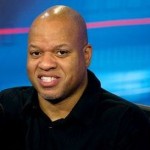 Coleman: I would say under the microscope more, but not as much as before. I think there are plenty of programmers that look at ratings and that’s enough. I could be wrong though.
Coleman: I would say under the microscope more, but not as much as before. I think there are plenty of programmers that look at ratings and that’s enough. I could be wrong though.
Scruggs: You don’t see any minorities getting manager jobs without experience. Ain’t no Latino, Asian or Black Brad Ausmus’ or Scott Servais’. I’ll always remember this one guy told me in an email I was simply hired because I was black. Little did he know I had a longer resume and worked in a larger market than all of the white hosts who were at the station that he felt were more qualified than I was.
What do you attribute the lack of non-white station managers and programmers to?
Adams: Many folks in executive positions in radio stations studied radio, broadcast and television in college and planned on being in the industry on one way or another. Many non-whites join the industry trying to figure out a way to leverage their expertise and playing or coaching history. That leaves the technical side of the job wanting in most cases.
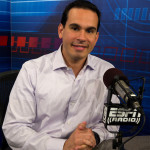 Sedano: Most people hire people like them. We see it in all walks of life. I’ve had all different people manage me. White, African American, Hispanic, and women. Though, I don’t think I’m the norm in that regard.
Sedano: Most people hire people like them. We see it in all walks of life. I’ve had all different people manage me. White, African American, Hispanic, and women. Though, I don’t think I’m the norm in that regard.
Harrison: It’s a cycle and there’s a lack of talent. There aren’t many hosts as it is, let alone minorities who are training and developing to become PD’s. If they’re not around the radio business to see how it runs and works then they can’t be given opportunities to manage.
Coleman: It goes back to comfort level and how much of a chance they have to succeed as well as the resources invested. I think it’s as if they’d rather interview, but not hire someone from a non-white background so they won’t get in trouble for being discriminatory.
What can sports radio do to become a more appealing career destination for people from non-white backgrounds?
Sedano: Invest in young talent and people of all backgrounds. There are a lot of good young talented people out there and they need to be given opportunities. Not all of them are conventional broadcasters. Look for the local blogger who covers your local sports landscape. See what they’re made of. Stuff like that takes effort. I think a lot of managers in radio are on cruise control and take the path of least resistance.
Dukes: I think we need to get into schools especially middle-schools and high-schools. We need to create programs, especially for under privileged children, and kids of color. They need to see that this is something they can do. The business has changed so much thanks to technology. You don’t have to work at a radio station to start practicing but those things have to be shown to people. I don’t think we’re doing enough in this business to create those opportunities for people who are going to come after us.
 Harrison: I don’t think it’s non appealing to non white backgrounds. I think it’s a matter of seeing more minorities hired. It’s discouraging to some to look at the media and not see many people like them in places of power. That shouldn’t be a deterrent. You have a dream, chase it, and put the work in.
Harrison: I don’t think it’s non appealing to non white backgrounds. I think it’s a matter of seeing more minorities hired. It’s discouraging to some to look at the media and not see many people like them in places of power. That shouldn’t be a deterrent. You have a dream, chase it, and put the work in.
Coleman: It IS an appealing destination. I get letters all the time from young black broadcasters who want to do what I’m blessed to do. I don’t think the format needs to do anything to attract more interest.
What advice do you want to pass along to aspiring broadcasters who aren’t white and are looking to receive consideration for a future opportunity?
Sedano: This will sound totally cliche, but there is a reason it becomes a cliche. Knock on every door and don’t be afraid of rejection. It’s going to happen. Get over it quickly and move on. Don’t let that stuff linger. It’s a useless exercise. Also, network your behind off, but be respectful of people’s time. No one likes anyone who is overbearing or worse… annoying. And, if you get in the business… Be nice to EVERYONE. You never know who your next boss will be.
Dukes: Be yourself. You don’t have to change or do anything different than what you’re doing. I was told by my mentor “don’t do it for the money, if you’re good enough, the money will come”. He was right.
The other thing, if you aspire to be, you can achieve it. Just because there may be no one who looks like you doing it in your town, doesn’t mean you can’t be the first to do it. Be a pioneer, be a trendsetter, and make it happen. Don’t let anyone stop you. I’ve been told many times “you don’t sound like the radio station, I’m not sure this is going to work, we might have a spot for you in a lesser daypart”. Those things didn’t stop me, so don’t let anyone try to steal your dreams.
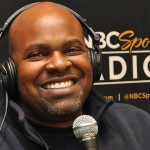 Scruggs: Work hard and continue to pursue your dreams. The big thing is to build your contacts and be in touch with decision makers. Go to conventions and conferences and get in front of people. I landed three radio jobs by going to the people who did the hiring and said give me a look. I made it happen. Now, it is easier for me because I’m a local TV sportscaster but you have to be willing to go grind and hustle to find work.
Scruggs: Work hard and continue to pursue your dreams. The big thing is to build your contacts and be in touch with decision makers. Go to conventions and conferences and get in front of people. I landed three radio jobs by going to the people who did the hiring and said give me a look. I made it happen. Now, it is easier for me because I’m a local TV sportscaster but you have to be willing to go grind and hustle to find work.
Also, be willing to move and work in a smaller market to get daily reps to become a good host. Never allow anyone to say you are not prepared. Too many guys in this business do ZERO prep work. Do the darn work. Build your contacts. Show up to events and games.
Coleman: Never give up or give in. There will be a person that will be advanced enough in their thinking to give you an equal chance. Once you’re in there, to use the old black adage, “be twice as good and never be afraid to be yourself”. That’s what got you in the door in the first place.

Jason Barrett is the Founder and CEO of Barrett Media. The company launched in September 2015 and has provided consulting services to America’s top audio and video brands, while simultaneously covering the media industry at BarrettMedia.com, becoming a daily destination for media professionals. Prior to Barrett Media, Jason built and programmed 95.7 The Game in San Francisco, and 101 ESPN in St. Louis. He was also the first sports programmer for SportsTalk 950 in Philadelphia, which later became 97.5 The Fanatic. Barrett also led 590 The Fan KFNS in St. Louis, and ESPN 1340/1390 in Poughkeepsie, NY, and worked on-air and behind the scenes at 101.5 WPDH, WTBQ 1110AM, and WPYX 106.5. He also spent two years at ESPN Radio in Bristol, CT producing ‘The Dan Patrick Show’ and ‘GameNight’. JB can be reached on Twitter @SportsRadioPD or by email at Jason@BarrettMedia.com.




